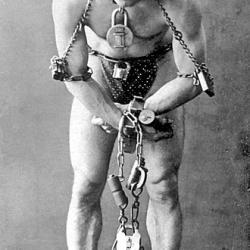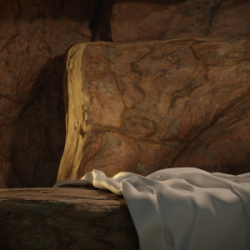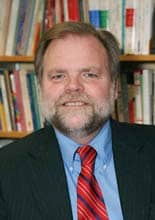 According to some accounts, Martin Luther King moved from his planned text to his improvised "I have a dream" speech when Mahalia Jackson prompted him, "Tell them about the dream, Martin."
According to some accounts, Martin Luther King moved from his planned text to his improvised "I have a dream" speech when Mahalia Jackson prompted him, "Tell them about the dream, Martin."
"Tell them about the dream." Could it be that these words still ring out for us today? In a time of scaled-down national imagination, the vocation of spiritual leaders of all faiths is still to speak a prophetic word—to "tell them about the dream."
These days I have been pondering the role of the imagination in transforming persons and nations. As a person of faith, I recognize the power of a holy imagination to deliver us from hopelessness and open the door to new possibilities. Unemployment, illness, injustice, and poverty can constrict our vision, imprisoning us in the pain of the present moment, unable to look beyond our own personal misfortunes. In describing her mother's last days, Simone de Beauvoir noted that the world had shrunk to the size of her mother's hospital room. At such times, we lose our dreams, mistaking realism for reality. Our goal is merely to survive, when our destiny is to thrive. It takes all the energy we have to look beyond our misfortunes and failures, but this larger vision—the power of the holy imagination, the lure of an alternative reality—has always been the inspiration for the prophet and spiritual guide. The dream reminds us that within what we perceive as limitations are possibilities for adventure and growth.
Today, we need to nurture a holy imagination at both the personal and national levels. We need to dream, and to dream big, because only dreams, only a holy imagination, can save us. Americans have always been frontier thinkers; the lure of adventure inspired the first Americans to journey from Asia across the Bering Strait and, later, European explorers to travel uncharted seas. Our parents traveled from sea to shining sea and built a great nation, inspired by a vision of abundant life for their families. We have been dreamers, and we have embodied these dreams in inventions, literature, architecture, medicine, spirituality, social concern, and science.
Many of us still have individual dreams, but I fear that we are losing our collective national dreams, visions of a great and imaginative nation, bringing the light of creativity, justice, and innovation to the world.
Our recent economic recession has constricted our imagination. Our highest values have been subordinated to the bottom line. We are afraid to take risks and to invest in the future, individually, corporately, and nationally. For some, only a small government with lower taxes can save us! For others, lowering taxes for the wealthy is the best a government can do! But, these visions are far too small for a great nation. Fiscal responsibility is essential in a family or a government, but without a dream, we may balance the budget but lose our personal and national souls.
Without a dream, whether you are facing a serious illness or unemployment, life withers and dies. When someone is facing a life-threatening illness, he or she is often asked, "What do you want to live for? What is your dream?" Only a dream can bring a person back from death's door.
Only great dreams and the sacrificial energy to achieve them can restore our nation to health. Today, we need to ask ourselves as a nation: "What is our dream? What are we living for?" A person and a nation thrive on vision and possibility, not fear and negativity. Here, the prophet calls us to dream, to imagine an alternative reality, and then embody it in daily life. Here Martin Luther King provides a pathway through our current national wilderness.
The words and deeds of Martin Luther King still invite us to have large and noble dreams. He invites us to dream of becoming a nation that is generous to the vulnerable, welcomes strangers, insures the well-being of everyone (even non-citizens) within its borders, and blends the individual and community in a diverse but beautiful harmony of harmonies. King invites us to a dream of national healing in which boarded up businesses become places of innovative thinking, in which rust-belt factories become meccas for "green" experimentation, and run-down schools become temples of the imagination.
The philosopher Alfred North Whitehead once described peace as the result of the self-transcendence in which my well-being is identified with the well-being of the whole. In that same spirit, King imagined a fabric of interdependence in which each of us recognizes that her or his well-being depends on the health and success of the neighbor and stranger. We are all in this together: other peoples' children matter and their education should be our priority; other peoples' health matters and accessible health care for everyone should be worthy of our personal sacrifices; other persons' opportunities to live the dreams God has given them matter and should be part of our own dream.





